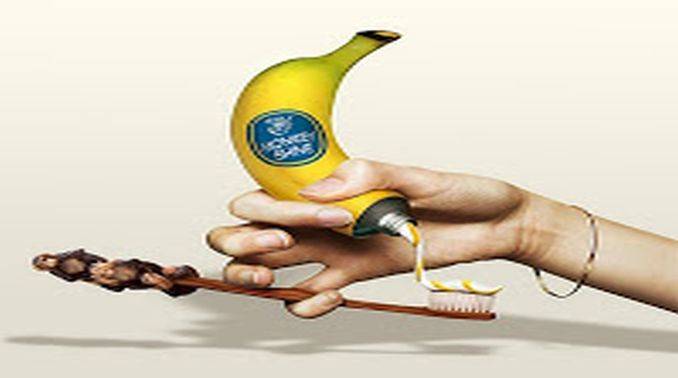First Publication Date: 28th October 2010.
Misuse of traditional knowledge and measures to prevent the same have been attracting attention since the turmeric patent controversy. After successfully revoking turmeric patent claims that formed part of traditional knowledge, the Indian government has taken numerous initiatives ranging from legislative and policy changes to documentation and creation of a library of information (TKDL). With the press and media joining the effort, the awareness with respect to rights of traditional knowledge holders , actions against traditional knowledge misuse, policy initiatives and so on has been increasing. The TKDL has been playing an important role in revoking and preventing patents on traditional knowledge. Industry and public reaction with respect to patent filings involving traditional knowledge has been aggressive and many times emotional.

Traditional Knowledge: Use or Misuse?
Recently, the Association of Manufactures of Ayurvedic Medicines and other activists have alleged that the patent granted to Colgate with respect to a herbal dentifrice in USA amounts to misuse of traditional knowledge. As per many news reports, the patent is being called as a ‘bogus patent’ (a word that does not mean anything) by activists. The primary concern of the association is that the ingredients of the composition claimed in the patent include clove oil, camphor, black pepper and spearmint, which are well known and therefore not patentable.
Patent Number: 7,736,629
Title: Red herbal dentifrice.
Abstract:
A dentifrice composition of the invention can be applied to teeth and/or gums by any conventional A dentifrice composition comprises (a) calcium carbonate having properties of particle size and angularity effective to provide mild abrasivity to dental enamel; (b) red iron oxide of low abrasivity in an effective amount on which to impart red color to the composition; and (c) a herbal component comprising at least one botanical or extract thereof, in a total herbal component amount effective to promote oral health.
Inventors: Kamath; Shridhara (Mumbai, IN), Nair; Ramesh (Pune, IN)
Assignee: Colgate-Palmolive Company
Claim 1: We claim:
1. A tooth powder composition comprising: (a) calcium carbonate having properties of particle size and angularity effective to provide mild abrasivity to dental enamel, wherein the particle size is selected from the group consisting of about 0.5 to about 30 .mu.m and about 1 to about 15 .mu.m; (b) an effective amount of a red iron oxide of low abrasivity which imparts a red color to the composition; and (c) a herbal component comprising at least one botanical agent or extract thereof, wherein the calcium carbonate and red iron oxide are present in a weight ratio selected from the group consisting of about 5:1 to about 100:1 and about 10:1 to about 50:1.
The first independent claim of the patent claims a composition comprising calcium carbonate, red iron oxide and a botanical agent or extract. Specific amount and weight of each of the ingredients and their ratios have been provided with precision. It can be noted from the claim that Colgate does not claim only the botanical agent or extract, which may include clove oil, camphor, black pepper and spearmint as claimed by the Indian association but also claims calcium carbonate and red iron oxide along with it. The combination of calcium carbonate and red iron oxide with traditional ingredients in a specific proportion and weight makes the composition patentable.
On a quick look at the prosecution history, I noticed that a patent (6,685,921) granted to Procter & Gamble Company with respect to dental compositions was cited by the examiner as prior art. The patent disclosed all the ingredients of the Colgate patent but did not teach the specific composition claimed by it. As the composition of Colgate was novel and non-obvious despite the existence of Proctor and Gamble’s patent disclosure, the USPTO granted a patent. I performed a quick search and noted that more than 750 patents have disclosed the traditional ingredients based on which the Indian activists are claiming that Colgate’s patent amounts to misuse of traditional knowledge. However, such patents met with no objection or concern.
Though documented traditional knowledge is not susceptible of patent grant, an invention that uses traditional knowledge is patentable provided it is novel and non-obvious. Colgate’s paent is a classic case where traditional ingredients have been used along with other ingredients in a novel and non-obvious composition. Therefore, the concerns of the Ayurvedic Manufacturers Association are based on either lack of understanding of the patent or lack of awareness of its coverage. None of the reports or statements indicate a strong logical foundation for their allegations.
The Colgate application has a family member in India, whose details are provided hereunder.
APPLICATION NUMBER : 3081/DEL/2005
APPLICANT NAME : COLGATE-PALMOLIVE COMPANY
DATE OF FILING: 18/11/2005
DATE OF COMPLETE SPECIFICATION: 18/11/2005
TITLE OF INVENTION : “RED HERBAL DENTIFRICE”
PUBLICATION DATE: (U/S 11A) 02/10/2009
REQUEST FOR EXAMINATION DATE :23/10/2008
STATUS – Application Awaiting Examination
As per the status on the patent office website, the application is yet to be examined. If the concerns of the Indian manufacturers is real, they can file a pre-grant representation and attempt to prevent its grant. It will be interesting to watch if they will take this path.



0 Comments
Pankaj Kumar
Today on 12 December 2018, I notd the application has been examined and the status is “Application in Amended stage”. I understand in view of present trends here in India, this application may be considered with some amendments. Mostly such application rejected where the applicant is a grass root inventor unable to influence the office, including weak prosecution.